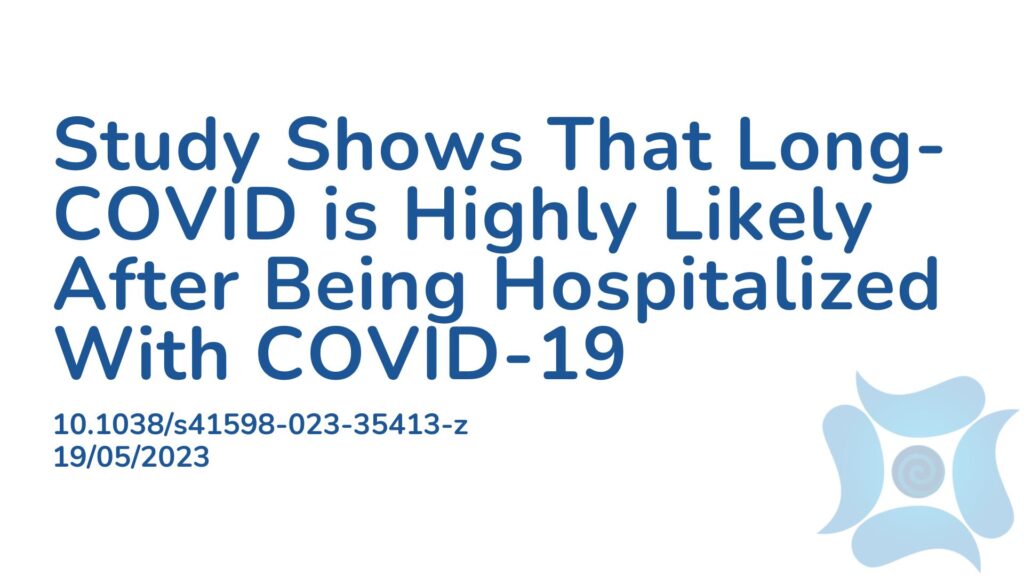Summary:
Globally, as of July 2023, almost 7 million deaths have occurred due to a COVID-19 infection. Despite a significant improvement in the clinical understanding of COVID-19 and long-COVID, the long-term effects of COVID-19 are still not definitively clear. In this survey study, 259 hospitalized patients who were infected with COVID-19 aged between 18 and 59 were interviewed and asked about new symptoms that persisted from 4 to 12 weeks after the onset of the disease. 92.5% of the participants showed ongoing symptoms such as hair loss, fatigue, shortness of breath, altered smell and aggression. The results also showed that long-COVID symptoms were more present in women, however this may be attributable to women paying more attention to their health and being more expressive about symptoms. This study shows a high probability of long COVID-19 symptoms if a person was hospitalized due to COVID-19.
Abstract:
Despite advances in clinical research, the long-term effects of COVID-19 on patients are not clear. Many studies revealed persistent long-term signs and symptoms. In a survey study, 259 hospitalized confirmed COVID-19 patients between 18 and 59 years were interviewed. Demographic characteristics and complaints were studied through telephone interviews. Any patient-reported symptoms that continued or developed from 4 weeks up to 12 weeks after the onset of the disease were recorded only if they did not exist prior to infection. The 12-Item General Health Questionnaire was used for screening and assessing mental symptoms and psychosocial well-being. The mean age of participants was 43.8 ± 9.9 years. About 37% had at least one underlying disease. 92.5% showed ongoing symptoms that the most prevalent complications were hair loss (61.4%), fatigue (54.1%), shortness of breath (40.2%), altered smell (34.4%), and aggression (34.4%), respectively. In terms of factors affecting patients’ complaints, there were significant differences between age, sex, and underlying disease with long-remaining complications. This study shows a high rate of long COVID-19 conditions that should be considered by physicians, policymakers, and managers.
Article Publication Date: 19/05/2023
DOI: 10.1038/s41598-023-35413-z



